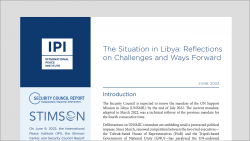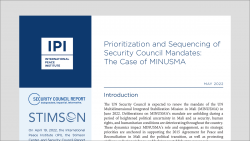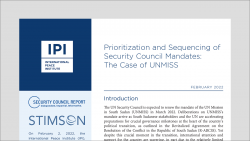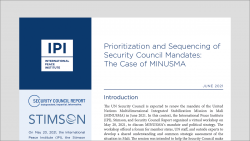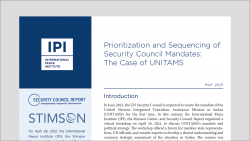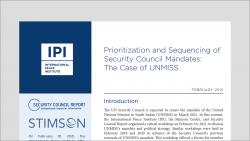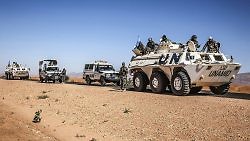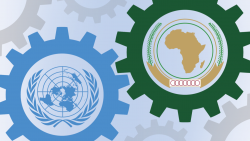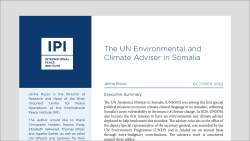
The UN Assistance Mission in Somalia (UNSOM) was among the first special political missions to receive climate-related language in its mandate, reflecting Somalia’s acute vulnerability to the impact of climate change. In 2020, UNSOM also became the first mission to have an environmental and climate adviser deployed to help implement this mandate. The adviser’s work […]
Read more